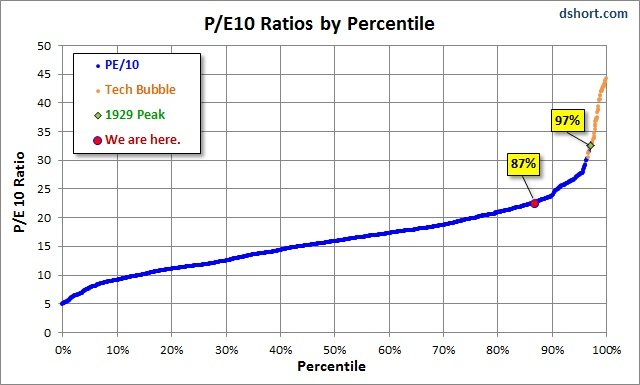Midpack
Give me a museum and I'll fill it. (Picasso) Give me a forum ...
IMO a very good, current article for those who like to monitor P/E ratios...FWIW
Is the Stock Market Cheap?
Is the Stock Market Cheap?
Attachments
Last edited:

